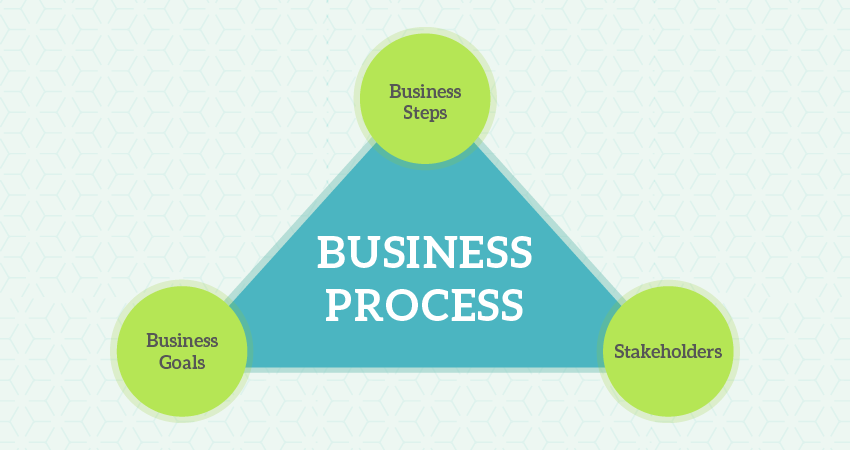Services
The search for global innovation
The search for global innovation refers to the ongoing pursuit of new ideas, products, and processes that can improve the lives of people around the world. This can encompass a wide range of fields, including technology, medicine, energy, and many others.
Innovation drives economic growth, creates new jobs, and improves the quality of life for individuals. For this reason, governments, businesses, and academic institutions around the world are investing in research and development (R&D) in order to find new and better ways of doing things.
Innovation drives economic growth, creates new jobs, and improves the quality of life for individuals. For this reason, governments, businesses, and academic institutions around the world are investing in research and development (R&D) in order to find new and better ways of doing things.

There are many ways to encourage innovation, including offering tax incentives for companies that invest in R&D, funding research at universities, and supporting entrepreneurship and start-ups. Governments can also create favorable regulations and provide infrastructure and other resources that support innovation.
In the global economy, the search for innovation is increasingly important, as companies look to maintain their competitive edge and stay ahead of the curve. With the rapid pace of technological change, companies must continuously innovate in order to remain relevant and profitable.
Ultimately, the search for global innovation is about improving the human condition and finding solutions to the world’s most pressing problems. Whether it’s developing new medicines to treat diseases, creating more sustainable sources of energy, or finding new ways to feed the world’s growing population, the goal is to make the world a better place for all.
In the global economy, the search for innovation is increasingly important, as companies look to maintain their competitive edge and stay ahead of the curve. With the rapid pace of technological change, companies must continuously innovate in order to remain relevant and profitable.
Ultimately, the search for global innovation is about improving the human condition and finding solutions to the world’s most pressing problems. Whether it’s developing new medicines to treat diseases, creating more sustainable sources of energy, or finding new ways to feed the world’s growing population, the goal is to make the world a better place for all.

The fight against wealth gaps in the world.
The fight against wealth gaps refers to the efforts to reduce the disparities in income and wealth between different groups of people. Wealth gaps are a major challenge around the world and can lead to economic, social, and political imbalances that can have far-reaching consequences.
There are many factors that contribute to wealth gaps, including access to education, healthcare, and employment opportunities. Inequality can also be perpetuated by policies and systems that favor certain groups over others, such as discriminatory tax codes and limited access to credit and financial services.
There are many factors that contribute to wealth gaps, including access to education, healthcare, and employment opportunities. Inequality can also be perpetuated by policies and systems that favor certain groups over others, such as discriminatory tax codes and limited access to credit and financial services.
To fight against wealth gaps, governments and organizations can implement a range of policies and programs. These may include increasing access to education and training, providing affordable healthcare, and promoting equal pay for equal work. Additionally, governments can implement progressive tax policies that ensure the wealthiest individuals and corporations pay their fair share and support social safety net programs for those in need.
Another important aspect of the fight against wealth gaps is addressing systemic barriers, such as discrimination and prejudice, that prevent certain groups from accessing opportunities and resources. This can involve increasing diversity and inclusion in the workplace, promoting equal access to housing, and challenging laws and policies that perpetuate inequality.
Ultimately, the fight against wealth gaps requires a comprehensive and sustained effort from governments, businesses, and individuals. By working together, we can create a more equitable and just world where everyone has the opportunity to reach their full potential.
Another important aspect of the fight against wealth gaps is addressing systemic barriers, such as discrimination and prejudice, that prevent certain groups from accessing opportunities and resources. This can involve increasing diversity and inclusion in the workplace, promoting equal access to housing, and challenging laws and policies that perpetuate inequality.
Ultimately, the fight against wealth gaps requires a comprehensive and sustained effort from governments, businesses, and individuals. By working together, we can create a more equitable and just world where everyone has the opportunity to reach their full potential.
Study on global governance
The study of global governance refers to the examination of the mechanisms, institutions, and processes that are used to regulate the interactions and relationships between states, international organizations, and non-state actors in the international system.
Global governance is a complex and evolving field that encompasses a wide range of issues, including economic, political, and security matters. It also involves the study of international law, diplomacy, and the role of international institutions such as the United Nations (UN), the World Trade Organization (WTO), and the International Monetary Fund (IMF).
Global governance is a complex and evolving field that encompasses a wide range of issues, including economic, political, and security matters. It also involves the study of international law, diplomacy, and the role of international institutions such as the United Nations (UN), the World Trade Organization (WTO), and the International Monetary Fund (IMF).

One of the main challenges in the study of global governance is the lack of a centralized system of authority and the fragmented nature of decision-making in the international system. This can lead to conflicting interests, difficulties in coordinating action, and a lack of accountability for global problems.
Despite these challenges, global governance is essential for addressing transnational problems such as climate change, global health epidemics, and terrorism, that cannot be effectively dealt with by individual states acting alone. Effective global governance requires cooperation and coordination among states, international organizations, and other actors, as well as a commitment to the rule of law, human rights, and sustainable development.
The study of global governance is important for understanding the mechanisms and processes that shape the international system, and for improving the effectiveness of international cooperation and decision-making. By examining the successes and failures of past attempts at global governance, we can gain insights into how to build more effective and equitable systems of global governance in the future.
Despite these challenges, global governance is essential for addressing transnational problems such as climate change, global health epidemics, and terrorism, that cannot be effectively dealt with by individual states acting alone. Effective global governance requires cooperation and coordination among states, international organizations, and other actors, as well as a commitment to the rule of law, human rights, and sustainable development.
The study of global governance is important for understanding the mechanisms and processes that shape the international system, and for improving the effectiveness of international cooperation and decision-making. By examining the successes and failures of past attempts at global governance, we can gain insights into how to build more effective and equitable systems of global governance in the future.

Optimization of business models of companies
The optimization of business models of companies refers to the process of improving the efficiency and effectiveness of a company’s operations in order to increase profitability and achieve long-term success. This can involve a wide range of strategies, including streamlining processes, reducing costs, improving customer service, and developing new products and services.
Business model optimization can involve reassessing key elements of a company’s operations, such as its pricing strategy, marketing approach, and distribution channels. For example, a company may decide to focus on building a strong online presence in order to reach more customers, or to shift its focus to offering premium products and services in order to increase profit margins.
Business model optimization can involve reassessing key elements of a company’s operations, such as its pricing strategy, marketing approach, and distribution channels. For example, a company may decide to focus on building a strong online presence in order to reach more customers, or to shift its focus to offering premium products and services in order to increase profit margins.
The process of business model optimization requires careful analysis and planning, and often involves testing and refining different approaches until the most effective solution is found. Companies can also look to other successful businesses for inspiration and best practices, and can partner with consultants or other experts to help them optimize their operations.
In today’s rapidly changing business environment, companies must continuously assess and optimize their business models in order to remain competitive and profitable. This can involve embracing new technologies, such as artificial intelligence and the Internet of Things, and exploring new market opportunities, such as the shift to a circular economy.
Ultimately, the optimization of business models is about creating value for customers and stakeholders, while also ensuring the long-term viability of the business. By continuously improving their operations and finding new and better ways of doing things, companies can build sustainable and successful businesses that drive economic growth and create jobs.
In today’s rapidly changing business environment, companies must continuously assess and optimize their business models in order to remain competitive and profitable. This can involve embracing new technologies, such as artificial intelligence and the Internet of Things, and exploring new market opportunities, such as the shift to a circular economy.
Ultimately, the optimization of business models is about creating value for customers and stakeholders, while also ensuring the long-term viability of the business. By continuously improving their operations and finding new and better ways of doing things, companies can build sustainable and successful businesses that drive economic growth and create jobs.
